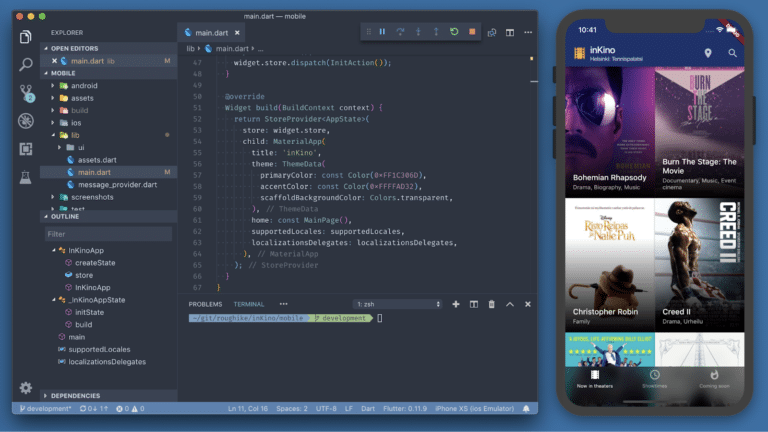Develop cross-platform apps using Google's Flutter

Speak to most app developers and they’ll tell you it’s much harder, more complicated and less interesting to produce an Android app, compared to iOS. Indeed, ask for a quote and both will be priced separately as both require separate development time and teams.
This might all be about to change with the final first release of a new cross-platform development tool from Google. Imagine a toolkit that you can use to program the functionality, allowing the UI framework to be provided to you separately and seamlessly.
Flutter was previewed at the Mobile World Congress earlier this year and is Google’s attempt to bring both iOS and Android development within one centralized toolkit. Flutter 1.0 is out of beta and fully available.
The idea of Flutter is that it is a tool that provides you with the code base to enable you to program your core apps, without having to worry about the UI and other elements you’ll need to publish your app. The downside is you need to work with the Dart language, which Flutter will then convert to ARM required for iOS and Android.
With the release of Flutter 1.0, Google has announced third-party integration with payment providers such as Square. The interesting note is that it’s already the development kit powering Google’s Ads app as well as the toolkit adopted by Phillips Hue and Capital One to create their iOS and Android apps.
Flutter has the longer term aim to be the centralized development tool for all things app and desktop development. Much like Apple is focusing on bringing iOS development to OS X, Flutter should enable you to create an app suitable for Windows 10, macOS, iOS and Android in the future.
If you’re an app developer, have you used Flutter? Does it make it easier to create cross-platform apps? Let us know in the comments below.
Download Flutter 1.0.
